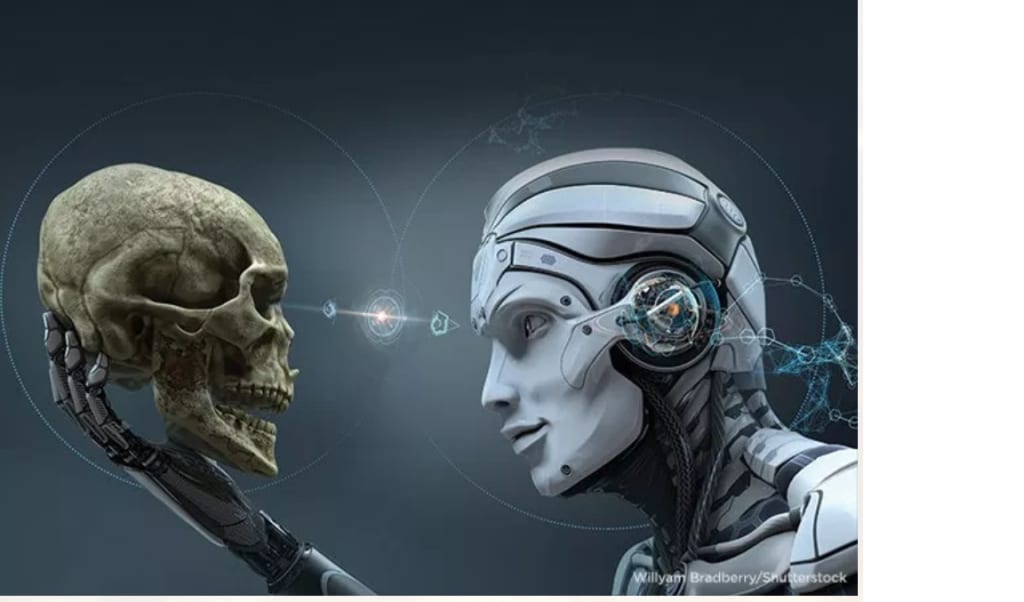Pondering the AI Paradox: Unlocking the Pandora's Box of the Tech Industry
From Sci-Fi Fantasies to Real-World Conundrums: Navigating the Ethical Quagmire and Societal Implications of the Rapidly Evolving AI Industry

Artificial Intelligence (AI) has emerged as a transformative force across numerous fields, revolutionizing the way we live, work, and interact. While AI presents immense potential for positive impact, it also raises concerns about ethical dilemmas and potential dangers. This essay delves into the dangers and benefits of AI in various domains, including medicine, gaming, and more. By examining both sides of the AI coin, we can better understand the complexities surrounding this rapidly advancing technology.
Medicine: Advancing Healthcare: AI in medicine has the potential to enhance diagnostics, treatment, and patient care. Machine learning algorithms can analyze vast amounts of medical data to assist in early disease detection, personalize treatment plans, and predict patient outcomes. However, concerns arise regarding data privacy, algorithm biases, and potential reliance on machines, which may overshadow human expertise and compromise patient-doctor relationships.
Gaming: Transforming Entertainment: AI has revolutionized the gaming industry, enabling realistic virtual worlds, intelligent non-player characters (NPCs), and immersive gameplay experiences. AI algorithms can adapt gameplay based on player behavior and preferences, creating personalized and engaging experiences. Nevertheless, the addictive nature of AI-powered games and potential psychological impact raise concerns about gaming addiction, social isolation, and the ethical responsibility of developers.
Transportation: Navigating Autonomous Future: Self-driving cars powered by AI have the potential to revolutionize transportation by improving road safety, reducing congestion, and enhancing mobility. However, safety concerns, ethical dilemmas related to decision-making algorithms in critical situations, and the potential displacement of human drivers raise questions about the societal implications of autonomous vehicles.
Education: Personalized Learning: AI applications in education can provide personalized learning experiences, adapt teaching methods to individual needs, and enhance educational outcomes. However, concerns about data privacy, algorithmic biases in grading and assessment, and potential overreliance on technology without fostering critical thinking skills warrant careful consideration to ensure ethical and equitable implementation.
Cybersecurity: Battling Digital Threats: AI can bolster cybersecurity defenses by detecting patterns, identifying vulnerabilities, and mitigating cyber threats in real-time. Nevertheless, malicious use of AI can create sophisticated cyberattacks, deceive security systems, and propagate disinformation. Striking a balance between leveraging AI's power and countering potential risks remains a significant challenge in the digital landscape.
Employment: Automation and Workforce Impact: AI-powered automation brings both benefits and concerns to the workforce. While it can enhance productivity, streamline processes, and create new job opportunities, there are concerns about job displacement, socioeconomic inequalities, and the need for reskilling and upskilling to adapt to the changing job market.
Privacy and Data Security: AI relies heavily on data, often requiring access to vast amounts of personal information. This raises concerns about privacy and data security. Improper handling or unauthorized access to sensitive data used by AI systems can lead to breaches of privacy, identity theft, and the misuse of personal information.
Bias and Discrimination: AI systems can inherit biases present in the data they are trained on, perpetuating and amplifying existing social biases and discrimination. This can result in unfair treatment, discrimination, and exacerbation of social inequalities. Ensuring that AI systems are developed and trained with unbiased and diverse datasets is crucial to mitigate these issues.
Dependency and Unpredictability: Over-reliance on AI systems without understanding their limitations and potential failures can be risky. AI algorithms can encounter unexpected scenarios or exhibit unpredictable behavior, leading to errors, accidents, or unintended consequences. Humans may become overly dependent on AI systems, diminishing their own skills and decision-making capabilities.
Security Threats: As AI technology advances, it also introduces new avenues for cyber threats. Malicious actors can exploit vulnerabilities in AI systems, using them to launch sophisticated attacks, manipulate data, or create convincing deepfakes. Developing robust security measures to protect AI systems and data integrity is crucial to safeguard against these threats.
Social Impact and Inequality: The widespread adoption of AI may exacerbate existing social inequalities. Access to AI technology, including its development and benefits, may not be evenly distributed, leading to a digital divide. This can further marginalize disadvantaged communities and perpetuate societal disparities.
As AI permeates various fields, we must carefully navigate the dangers and benefits it presents. Ethical considerations, transparency, and responsible implementation are crucial to maximizing AI's potential while mitigating its risks. By addressing concerns such as data privacy, algorithmic biases, and human oversight, we can harness the transformative power of AI to improve lives, advance industries, and shape a future where technology and humanity coexist harmoniously.





Comments
There are no comments for this story
Be the first to respond and start the conversation.